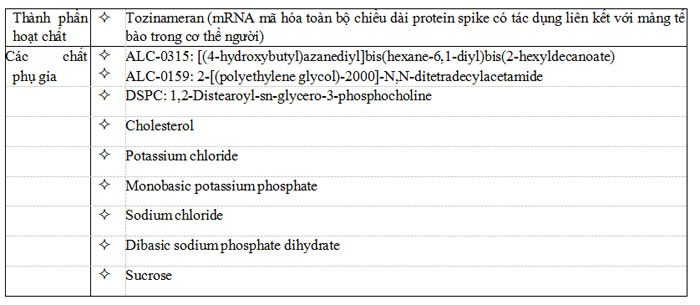The Comirnaty vaccine from Pfizer – BioNTech is an RNA (mRNA) vaccine. The mRNA vaccine helps the body’s cells produce a harmless protein. This harmless protein then triggers the body’s immune response to create antibodies against the SARS-CoV-2 virus.
Important Considerations When Receiving the Pfizer Vaccine
- Individuals Who Cannot Receive the Vaccine
- Individuals Who Need to Exercise Caution When Vaccinated
- What to Do After Receiving the Vaccine
- Side Effects
- About the Compensation System for Health Damages Due to Vaccination
- About Infectious Diseases Caused by the Coronavirus
- Characteristics of the Coronavirus Vaccine (Produced by Pfizer) Used in This Vaccination
The mRNA vaccine does not alter or interact with the DNA of the vaccinated individual in any way, does not use live viruses that cause COVID-19; it cannot cause COVID-19 in the vaccinated person.
This vaccine is part of the government and local authorities’ vaccination program against the coronavirus (SARS-CoV-2) and is intended for individuals aged 12 and older.
Vaccine Effects and Usage
This vaccine is produced by Pfizer. It is effective in preventing attacks from the coronavirus.
Research results indicate that the group of individuals vaccinated had fewer infections with the coronavirus compared to the unvaccinated group. (The effectiveness in preventing the outbreak is reported to be approximately 95%).

- The second dose is usually administered about 3 weeks after the first dose. (Please receive the second dose as soon as possible if it has been more than 3 weeks since the first dose).
- If you received this type of vaccine for the first dose, ensure that you receive the same vaccine for the second dose.
- Experts believe that the body will achieve sufficient immunity approximately 7 days after receiving the second dose of this vaccine. The effectiveness of the vaccine in preventing virus transmission is not yet clear. You still need to take appropriate precautions against infection, regardless of whether you have been vaccinated or not.
Individuals Who Cannot Receive the Vaccine
This vaccine should not be administered to the following cases. Please inform your doctor during the consultation process before vaccination if you notice any condition corresponding to any of the following.
- Individuals with a pronounced fever (*1)
- Individuals with severe acute illness
- Individuals with a history of severe allergic reactions (*2) to any component of this vaccine
Characteristics of the Coronavirus Vaccine (Produced by Pfizer) Used in This Vaccination
This is a messenger RNA (mRNA) vaccine, and it is a formulation in which the mRNA acts as a blueprint for the spike protein of SARS-CoV-2 (the protein necessary for the virus to enter human cells), encapsulated in a lipid membrane. After the mRNA is introduced into human cells through vaccination, the virus’s spike proteins will be produced in the cells based on this mRNA, while also generating neutralizing antibodies against the spike proteins and forming a cellular immune response believed to prevent infectious diseases caused by SARS-CoV-2.
This vaccine contains the following components.




















































